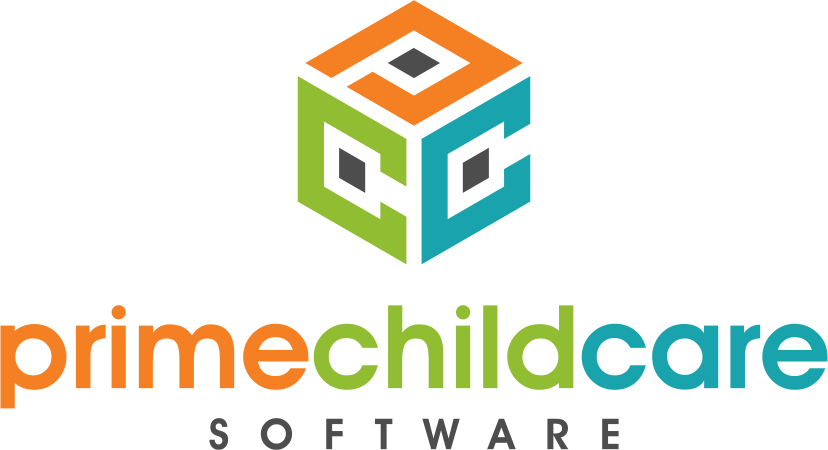Day-cares are struggling more than ever. You’ve heard whispers about it, but can you really save your business with a drop-in childcare program?
The ebb and flow of employment is often influenced by social and economic factors beyond our control. As a childcare business owner, you understand this first-hand. Birth rates change, wages plummet in light of a pandemic, and workplace practices evolve. This all leads to uncertainty, making it difficult to determine the long-term viability of your business.
In June 2020, the economy added 4.8 million jobs, and the U.S. unemployment rate fell to 11.1%. But, will these promising job numbers help daycares? In light of COVID-19, the daycare industry may well lose 4.5 million childcare slots.
That’s a sobering statistic. Added to that is the increasing trend towards working at home. Between a growing work from home movement and social distancing considerations, employees with families may not need full-time child care services. In addition, many parents have lost their jobs and find themselves in straitened financial circumstances.
Thus, your success may depend on the economy, social climate, and local career opportunities in your region. If a big employer shutters its doors in your town, you’ll probably see a decline in your attendance numbers. Below, we talk about ways to shore-up your bottom line by offering drop-in childcare as a new revenue stream. We’ll cover details like logistics and marketing, and the flexible technologies needed to manage your program well.
But first, let’s talk about the changes in traditional daycare. These are the driving factors that create a need for drop-in care.
Reasons for Offering Drop-in Childcare in 2020
Many parents must choose between spending a significant portion of their wages on full-time daycare or finding a cheaper but potentially lower-quality care option. Others wind up leaving the workforce altogether. Whether it’s high costs, limited availability, or low-quality services, these challenges influence the choices parents make about daycare.
Consider these statistics:
- In 2016, roughly two million parents made career sacrifices due to problems finding adequate child care.
- Between 1985 and 2011, the costs of childcare increased by roughly 70%, though wages did not, according to the U.S. Census Bureau.
It’s not entirely clear why the cost of childcare has skyrocketed. However, the usual culprits are strict labor laws, high regulatory standards, and excessive legal liabilities. Still, wages among caregivers have remained stagnant; childcare workers make an average of $10/hour. And, their responsibilities have increased. It’s no longer enough that children are fed and kept happy. They must make new strides daily in high-quality early learning programs.
Historically, low-income mothers ran informal, home-based childcare operations. However, in the early 1990s, a range of government-funded childcare programs like Head Start sprang up. This led to many informal childcare providers formalizing their offerings.
How the Work-From-Home Movement Could Affect Child Care in America
The work-from-home movement (WFH) continues to grow in 2020. With the realization that telecommuting can reduce overhead costs and increase productivity, employers overwhelmingly support the movement.
- As working from home becomes more popular, there’s a good chance full-time childcare centers will experience declining enrollment.
- Some parents may decide to permanently work at home while caring for their children.
- Meanwhile, others may seek to offer informal home-based services in their neighborhood.
By offering — and advertising — drop-in services, child care organizations can build their client base. Working parents still need access to quality child care, though probably not on a full-time basis. For example, they may need quiet time to focus on quarterly reports or a few hours to run errands. By offering drop-in care, providers can also reduce overhead expenses.
Marketing a Drop-in Childcare Program to Parents With “Four-Walls Marketing”
Whether your childcare business is a “big fish in a small pond” or one of many in a bustling marketplace, one of the best ways to market to parents is through Four-Walls Marketing.
Today’s full-time care customers are tomorrow’s drop-in care customers. So, offer drop-in services, if possible. In addition, leverage digital and social media marketing strategies to increase your enrollment.
We think this Columbus Business First article says it well. “Many business owners and managers spend money on advertising campaigns to bring customers in the door only to have them disappointed by their experience within the four walls of the business… advertising creates short-term customer traffic. Four-walls marketing… creates long-term customer loyalty, assists in building customer frequency, and creates a solid reputation for your business.”
To put it another way, expending resources to attract new business is futile if certain elements aren’t in place. You’d be better-served making facility and operational improvements and giving your signage a facelift as you make a move towards offering drop-in care.
Drop-in Childcare Logistics
Regulations for drop-in child care arrangements are far less stringent than those for full-time facilities. Presently, drop-in care isn’t regulated by any federal or state program like the Department of Health and Human Services (DHHS) or the Division of Child Development and Early Education (DCDEE).
Although there are no educational or nutritional requirements for this type of daycare, you’ll still need to post a notice that you’re not required to be licensed, as required by GS 110-86(2)(d)(d1) and GS 110-99(c).
Ultimately, the shift towards telecommuting may be permanent. Large tech companies like Twitter and Facebook announced permanent work-at-home policies in May. Meanwhile, the 94-year-old Nationwide Insurance closed five regional offices in Florida, Virginia, Wisconsin, Pennsylvania, and North Carolina. The Ohio-based company intends to increase its telecommuting staff to 50% of its workforce.
Work With Prime Childcare Software to Achieve Business Resilience
Recent upheavals caused by the COVID-19 crisis have transformed how we work, and many parents are facing evolving changes in the employment landscape. While some employees will choose to telecommute, others may decide to try the hybrid-remote approach. Thus, they may only head to the office once a week or alternate between remote and office work. These considerations make the childcare industry a shifting landscape.
At Prime Child Care Software, our goal is to provide you with flexible technological solutions to help you run a daycare center successfully. You’ll be able to focus on customer experience and engage in projects that will establish your business as a trusted source for childcare.
By spending fewer staff hours on issues like data privacy management, meal planning, and billing, you can focus on finding more creative ways to diversify your income stream and place your organization at the forefront of your market.
If you’d like to learn more about building different sources of income, check out our enrollment guide for attracting parents and increasing your enrollment numbers, or reach out to Prime Childcare Software. We offer working solutions to help you achieve business success.
Related Reading & Resources:
The Centers for American Progress: The Child Care Crisis is Keeping Women Out of the Workforce
Recent Articles from Prime:

Adding a New Revenue Stream With Drop-In Childcare
Hard times call for creative measures. Learn how to diversify your income stream with drop-in care. … Read More

How To Fire Up Your Childcare Center Staff
Igniting excitement and community in your school for the next semester — FIRE UP YOUR STAFF!! Whether you are a student or a teacher, there is something about the beginning of the term or school year that is special. The

Considerations for Reopening Daycare Facilities Post-COVID-19
Are you getting ready to reopen your daycare? Get important information about what it takes to reopen safely post-COVID-19. … Read More

Comprehensive Guide to Choosing the Best Childcare Management Software
When shopping around for childcare management software, there are a dizzying number of factors to consider: price point, capabilities, and customer support to name a few.
Check out this comprehensive guide to help you find the best childcare management software for you. … Read More

Complete Checklist For Infant Care Professionals
Research shows that despite the facilities or number of staff that a daycare center has, the true indicator of the quality of a childcare program directly relates to the knowledge, attitudes, and skills of the adult professionals who work there. Check out our complete checklist of the different aspects of infant care, needs, and changes that daycare staff should consider. … Read More

Building A Constructive Parent Feedback Program For Your Childcare Center
Survey Says: Constructive ways to Collect, Evaluate, and Implement Change Based on Parent Feedback. Do you consider the parents of your preschool, day care center, or after school program to be enemies or allies? Have you ever even thought about









